
Whatever Stephen King's gripes about Stanley Kubrick's adaptation of his novel , its place in popular culture remains set. The maze (a replacement of the novel's predatory topiaries), the orange-tinged carpet, the blood cascading from an elevator, those two girls who just want to play "forever and ever"- they've been parodied to the point of cultural exhaustion- the film's icy, unsettling imagery has become iconic. Even someone who hasn't seen The Shining would have a passing familiarity with Kubrick's recreation of the infamous Overlook Hotel. As a result, doing a sequel to the novel is tricky. The novel may be famous, but how do you not picture the film's labyrinthine corridors? There'a a kind of medium transposition that has taken place, because the novel and its adaptation are so different from one another.
Doctor Sleep, Stephen King's 2013 novel continues the saga of Danny Torrance, the tormented young boy who's psychic shining turned a malevolent force into an entity capable of lashing out and destroying the family unfortunate to be stuck within its walls. He conceived it both as a continuation of Danny's story but also as a retort to iconic Kubrick film he famously detests. Mike Flanagan, a director who previously brought King's once-believed to be unfilmable Gerald's Game to Netflix, manages to walk a delicate, thin tightrope by taking the fleshed-out, well-rounded characters of King's novel and thrusting them into the Kubrick's visual recreation and narrative alterations.
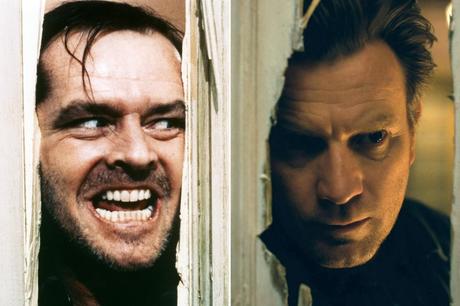
Like King's novels, both The Shining and Doctor Sleep, Flanagan's film takes place in a world where the ghosts that haunt you are as likely to be psychological scars as they are supernatural entities. This isn't new territory for Flanagan. Both his Haunting of Hill House, owes as much to The Shining as it does to the Shirley Jackson source material, and his earlier film Oculus examine the ways in which the past intrudes and picks away at the present, turning old scars into raw wounds. He has a knack for marrying supernatural horror with psychological believability. His Doctor Sleep may lack the chilly scares and overwhelming foreboding of Kubrick's film, but it replaces the film's surface with an emotional, melancholic story that lingers long after its credits roll.
Although it opens in 1980, the majority of the film takes place decades after the events of The Shining. Doctor Sleep 's feels initially episodic, with three seemingly disparate narrative threads concurrently unfolding. First, we have the True Knot, a vampire-like cult that preys on psychic children, turning a few and feeding on the rest in order to prolong their lives. Led by Rose the Hat (a stunningly charismatic Rebecca Ferguson), who protects her motley crew of predators with fierce loyalty. When the essence upon which they feed comes around less frequently, they find themselves driven to more and more desperate measures to maintain their youth and well-being. It's fitting for a film this fixated on mortality to have villains whose primary drive is to cheat fate for as long as possible, hang the consequences.
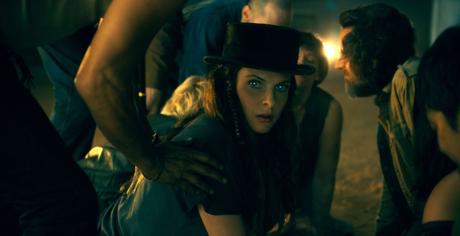
Then we have Dan (well played by Ewan McGregor), struggling to overcome his temper and his need to drown his trauma in whiskey in the hopes he is a better man than his father. Even as an adult, he's fighting the same demons that have plagued him since he escaped from the Overlook Hotel, only using "shine" to lock away in mental boxes the Overlook spirits that continue to reach out to him. He washes up in a small town where, with the help of a man named Billy Freeman (Cliff Curtis), he finally begins to regain control of himself and finds a way to use his shining to comfort patients at a local Hospice (earning him the titular nickname- an echo of the ''Doc" nickname he had as a child).
Finally, we have Abra (Kyliegh Curran), a young girl who possesses a powerful shining herself. Eventually, she finds herself reaching out to Dan, leaving messages on the blackboard in his room, first as playful greetings, then as cries for help. Much of the film is waiting to see how these three storylines will find themselves intertwined. The film moves at a languorous pace, spinning these separate narratives before weaving them together into one cohesive plot, but by the time that happens, we've spent so much time with the characters that we're ready to follow them off of any deep end.
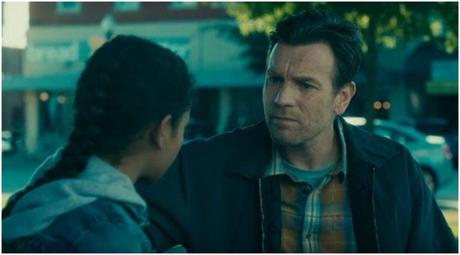
The film builds tension effectively and creates some impressive nightmare imagery, including a scene depicting what the True Knot actually does to the children it abducts that's truly disturbing. However, Flanagan understands that King's characters that give Doctor Sleep its power. We fear what will happen to Dan or Abra, because the film takes the time to make certain we care about them. It's the element that the best of King's adaptations understand and the poorest overlook: without fully-fleshed out characters, horror lacks emotional punch. By the time the characters are headed to that infamous, rotting hotel, the recreation of iconic, sweeping helicopter camera shots and that famous hotel feels like a grin-inducing bonus for those who love both King's and Kubrick's Overlook.
Doctor Sleep has less interest in horror imagery. that its 1980 counterpart, and even though it uses that film as a stepping stone, it manages to stand on its own. It's a more contemplative, melancholic film, prefering to examine how childhood traumas haunt us into adulthood and what it actually means to come to terms with mortality, even with a certainty that at least some of us do go on. Viewers looking for jump scares should look elsewhere, because both King's novel and Flanagan's film are more interested in the kind of terror that stems from terrible things befalling characters we like. It leans heavily into and earns its inherent pathos. If you end the film with misty eyes, it won't be entirely unexpected.
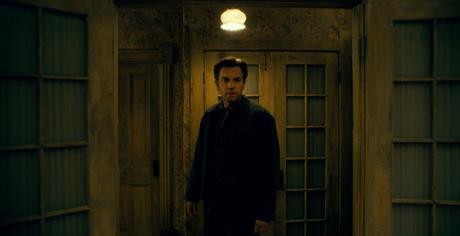
The cast is uniformly strong. McGregor's open, honest face exudes a sense of basic decency, which ensures we care about Dan even when he's doing some pretty despicable things. He manages to convey the trauma Dan carries with him, while also exhibiting the inner resolve to make his eventual confrontation with his past (and the True Knot) seem believable. His eventual bond with Abra is also moving. It's a lovely performance of apiece with the film's elegiac tone.
Yet, more than almost any other King adaptation, it's the women who really hold the spotlight. Newcomer Kyliegh Curran delivers a knockout performance, imbuing Abra with both a needed ferocity and grit, while never letting the viewer forget she's still just a young girl fighting battles beyond her years. She also has a naturalistic, warm chemistry with Ewan McGregor. Both Dan and Abra understand the all-too-relatable childhood instinct to shield parents from the parts of themselves that scare them, and they both convey that burden in emotionally resonant ways. The film's tension kicks into high gear when Abra's abilities put her on the True Knot's radar, forcing Dan to confront the demons he's been working so hard to repress, and the climax thrives on their chemistry.
However, it's really Rebecca Ferguson that delivers the stand out performance. When one first hears the name "Rose the Hat," it's tempting to roll one's eyes. How could a character with such a goofy name feel threatening? Ferguson breathes electric vitality into one of King's best villains. A mixture of ice-cold cunning, white-hot rage, threatening sexuality, and a playful devil-mare-care flippancy, Ferguson manages to give us a horror villain for the ages. She commands and owns every moment she's on screen.
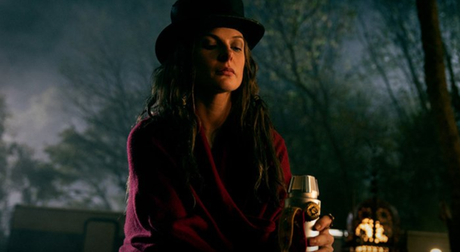
Really, though, this is Flanagan's film, and it brims with his unique horror sensibilities. Like King himself, Flanagan has a warm, sentimental streak that pulses through Doctor Sleep 's narrative. His horror films tend to have emotional resonance because they take the time to give their characters nuance, fleshing them out in a way that makes us root for them to succeed and empathize with their setbacks. I'm sure he felt like a kid in a candy store recreating the Overlook and filming the tricycle spinning around its corridors, but the film would feel like a mere imitative facsimile of a horror film if it didn't take the time to create a world with rules we understand and character to whom we can relate. The movie also looks beautiful, filmed in a rich, blue-tinged color palette.
Stephen King's The Shining used the image of a boiler that had to blow off steam as a metaphor for the rage Jack Torrance had just beneath his surface, arguing that repressed anger has to be therapeutically released or risk a catastrophic outburst. Doctor Sleep has Danny's mental boxes, in which he locks away all of the threats that reach out and threaten him. The film reminds us that locking away trauma only works temporarily. Eventually, trauma has to be confronted.
Despite the film's length, it never really drags, and it keeps its delicate balance without a wrong foot stepped. Unlike more recent adaptations, it manages to keep its source material's thematic resonance intact, even when it breaks away from its narrative. There's been a glut of King adaptations lately, but it's safe to say that Doctor Sleep is one of the best.

